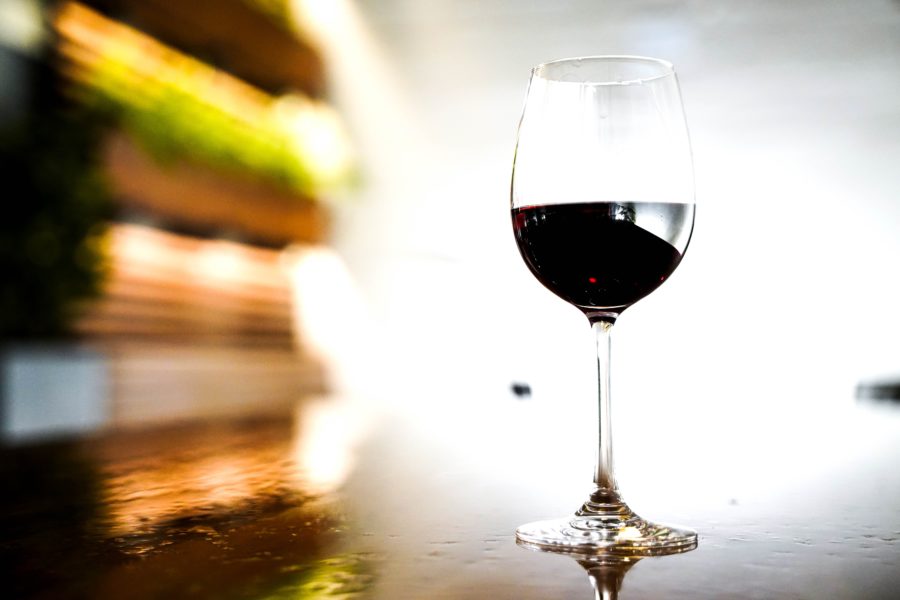
We all recognize the great wine regions of the world. Most notably, France’s Bordeaux; Spain’s Rioja; Australia’s Barossa; the United States’ Napa, and who could leave out Italy’s Tuscany? These finest appellations are from both the Old and New Worlds, as they’ve come to be known. Both worlds are wonderful in their own right, sometimes colliding, yet with arguments on each side of the Atlantic declaring which is the greatest known to mankind. What we do know to be unarguable, regardless of preference, is to recognize these pieces of geography as the finest terroir on the globe. (Could there be another planet producing better nectar of the gods? I think not!)
Well, perhaps there may not be another planet in our galaxy growing any fruit that makes up such an enjoyable pastime, but what may surprise us is that there exists a phenomenal corner of our wine world, little known to wine lovers, that also might just rival the great regions mentioned above.
Lebanese vines introduced wines to the small world at that time, over 6,000 years ago, the birthplace of the world and of wine. The sea-faring Phoenicians, inventors of the alphabet, and ancestors of the Lebanese people today, spread their winemaking talents throughout the Mediterranean lands back around 4,500 BC. (How quickly we forget where wines were first produced!) So, since our memory failed us, we simply say, Lebanese wines? Really? If they are that good, why don’t we know more about them? Well, let’s take a closer look at answering these questions.
Lebanon lies on the east side of the Mediterranean seaboard, bordered by Israel to the south, and Syria to the north and east. However, what makes this small country so special is the Bekaa Valley which cascades between the Lebanon and Anti-Lebanon mountain ranges, and is approximately 50 miles east to northeast of Beirut. Perched close to 3,300 feet above sea level, and in close proximity to the equator, the Bekaa Valley is assured of warm, sun-bleached summers and cooler winters—just the perfect ingredient needed for high-quality grape growing. Let’s add to this very favorable mix the gravelly and stony soils that are indigenous to the very fertile ground there, and what we have is one of the greatest terroir gifts that God has ever given us.
So, we can add the Bekaa Valley appellation in Lebanon to the gold standard terroir list of best appellations in the world based on the above. However, the question remains why isn’t it known to the wine world? There are at least two reasons: The first is the small size of production that drives world consumption. The average liters produced in Lebanon during the 2017 year was 15k. The average liters produced in 2017 by the 5 major powerhouse wine countries I list above was 3.313M. Not even close. While the small production caused Lebanese wines to stay within the walls of the Middle East, the lack of varietals also drove another reason why these could be the best-kept secret of great wines.
Obadiah and Merwah are two of only six indigenous grapes grown and cultivated in Lebanon. Since the higher elevations favor whites over reds, this ancestor fruit does very well, preceding the Chardonnay and Semillon that is so closely associated with these great whites. The vines are phylloxera-free, which is another reason why production is so small today. This deadly disease destroyed many vineyards, effectively wiping out most, if not all reds. The white grapes, due to the chalky soils and calcareous gravels, coupled with vines that reside on the seaward side of Mount Lebanon, make the whites more floral and aromatic. The reds are full of raisins, prunes and cedar, with a rich color only garnet can give you.
If you’ve read any of my past columns, you’ll note I rarely make wine recommendations. However, now that I have hopefully piqued your interest in Lebanese wines, I wouldn’t hesitate to reach for a bottle of Chateau Musar from the Bekaa Valley of Lebanon. A few weeks back, friends shared a bottle of the 1999 and 2003 Cabernet Sauvignon, blended with Cinsault and Carignan. It was surprisingly excellent, rivaling the best of best. So, when you next venture online, research Lebanese wines from the Bekaa appellation. Like me, I’m sure you’ll experience a corner of the globe that’s one of the best, and least known, wine producing regions. I know you’ll go back once you’ve experienced these delights. I know I will.

